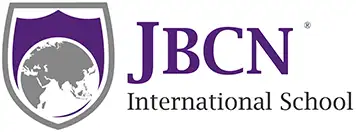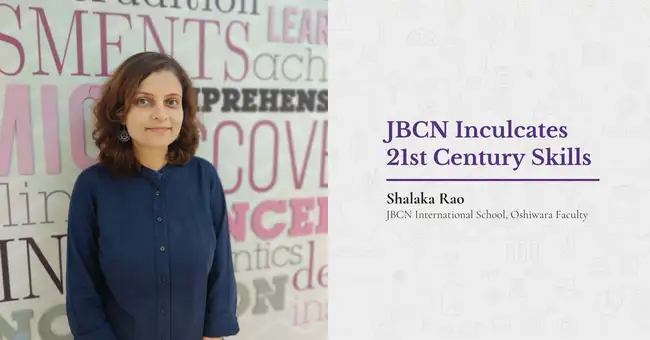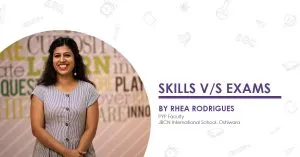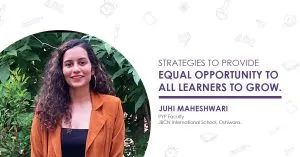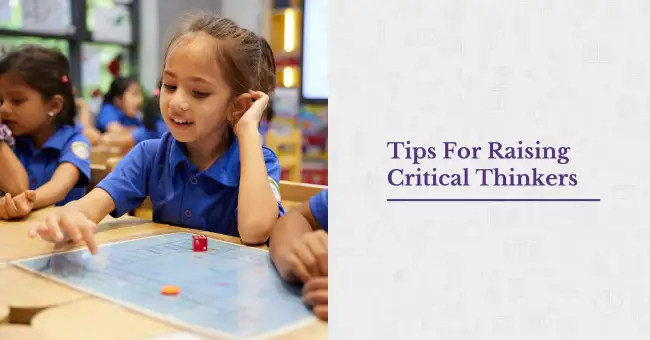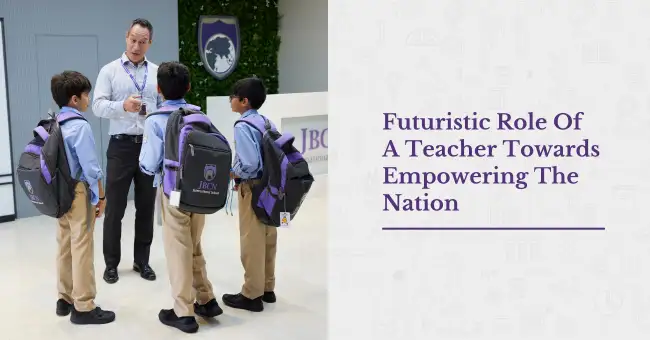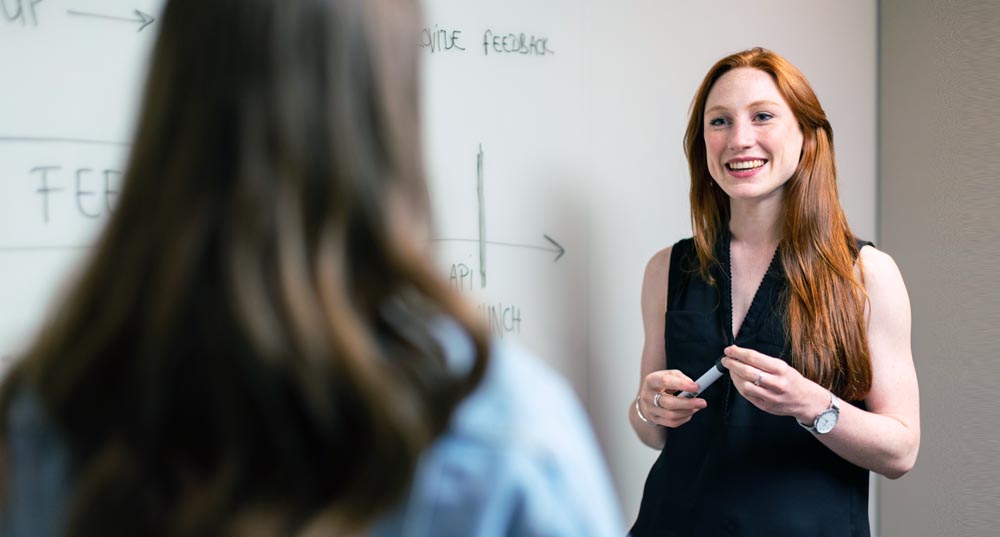
– Sir Ken Robinson (1950-2020)
This quote grabbed my attention and endorsed my belief of teacher’s contribution towards our empowering nation. As we live in the VUCA world - which is full of volatility, uncertainty, complexity, and ambiguity, we are experiencing a change in dynamics -.... It is our constant endeavour to provide the students with a Stable, Certain, Simple, Clear environment (SCSC). The very essence of each element is an amalgamation of the concept of life-long learning, being risk-takers to get prepared for real life issues and its uncertainties through formal education!!
As teachers, we all rush to ‘transact the curriculum and the syllabuses and most often forget that every single child is special and unique. They learn differently, think out of the box and this surely does not only require for a teacher to be patient but also to be as calm as a sea. The teacher needs to show passion and vigour in achieving the goals set and contribute to our nation by shaping the lives and minds of our young generation. When I speak about learning differently… what is the first thought that comes to your mind?
Differentiation in our classrooms…
All of us as teachers believe and know that no two children think and learn the same way! We have witnessed that; at times it is necessary for each of us to present information in a completely different manner to reach some of our students. Differentiation isn’t as hard as you might think. I recently read about an animated video published by Education Week that explained; “differentiating instruction is about getting to know your students.” Gardner’s Theory of Multiple Intelligence makes this process easier as it is solely based on experiments or experience. It helps educators by giving a conceptual structure and wide range of tools that will allow each one of us to meet the needs of the different types of students present in every classroom. Not only focused on needs of each student but Gardner’s theory also supports us to plan learning engagements that involve multi sensorial learning.Talking about intelligence...
Immediately the thought of IQ comes to our mind. All humans have a preconceived notion that everyone’s innate intellectual potential and the capacity is challenging to change. Over the years, the understanding of intelligence has unfolded and one such creation is the theory of Multiple Intelligences put forward by Howard Gardner, a psychologist from University of Harvard. This theory is different from the traditional views of intelligence. Gardner says, “In order to capture the full range of abilities and talents that people possess, he theorizes that people do not have just an intellectual capacity but have nine kinds of intelligence.”To share a few… musical, interpersonal, spatial-visual, and linguistic intelligences and as suggested a possible addition according to him, the ninth is known as “existentialist intelligence.”
I have often speculated about the existence of what I term “existential intelligence”—the intelligence that poses and ponders “big questions.” All of us have the capacity to raise big question but individuals differ greatly in their capacity and their inclination for pursuing such questions however, SCAMPER (Substitute, Combine, Adapt, Modify, Put to another use, Eliminate, Reverse) is a mnemonic to prompt for excellent, impromptu questions. As the questions posed in a classroom are meaningful, it becomes our responsibility as a mentor to make our students knowledgeable. Edward de Bono: Six Thinking Hats makes it easier to generate more ideas, thus increasing the likelihood of higher quality outputs. He is one of those rare authors who believes in lateral thinking and instructs people on ‘how to think’ rather than ‘what to think’. Effective facilitation does not rely on the use of ‘hats.’ However, debates, exchange of ideas, collaboration leads to change in participants’ perspectives creating more robust deliverables.
At times I feel “All kids pose big questions—but only a small subset listens to answers and pursue them further.” Our role as empowering teachers is to encourage them to research, make connections with their learning, thus strengthening their conceptual understanding. All students would be at a different stage of learning! As a guide, it becomes essential for us to understand the level of learning that is required for a class to make it easier to our plan success criteria. Every time an opportunity of a new learning experience is provided to the student, you must start at the base of Bloom’s Taxonomy pyramid i.e. the ‘Remembering’ step and build a solid foundation before climbing up to the next level to reach the peak i.e. the ‘Creating’ step where they can Imagine, Plan, Design, thus developing their reasoning skills.
Benjamin Disraeli had said, “The secret of success is to be ready when your opportunity comes!” So let us bring forth our ability to ‘walk the talk’, collaborate, share ideas and uplift ourselves to create an environment where we can thrive as I believe empowering teachers can create empowering students. Developing and gaining life-long experiences would give us teachers an encouragement and support to engage in continuous professional development. Being up-skilled continuously will help us in imparting right knowledge, skills, and competence which would enable the students to meet the demanding and challenging needs of the ever-changing society.
As teachers of an empowering nation, let us altogether feed-forward to create leaders for tomorrow by giving the students in our classroom a platform to grow, learn, develop resilience, and yet have fun!!!
Written by: Radhicka Desai
PYP Facilitator
JBCN International School, Chembur
List of References:
https://elearningindustry.com/blooms-taxonomy-for-business-learning-build-solid-foundation
https://mgrush.com/blog/debono-six-thinking-hats/
https://www.edweek.org/teaching-learning/how-to-differentiate-instruction-without-losing-your-mind/2019/02
https://www.multipleintelligencesoasis.org/blog
https://www.aakash.ac.in/blog/empowering-teachers-will-change-world-not-empowering-students/
https://www.verywellmind.com/gardners-theory-of-multiple-intelligences-2795161
http://johnsonpearledm310.blogspot.com/2014/03/blog-post-10-what-can-we-learn-from-sir.html
https://www.edweek.org/teaching-learning/differentiating-instruction-its-not-as-hard-as-you-think-video/2018/09
https://www.brainyquote.com/quotes/benjamin_disraeli_129996
